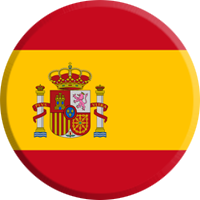
Studying in a foreign land in a reputed university is not an easy task. From admission application to reporting to university takes lot many efforts. Kites Immigration’s expert advisors help you clear those hurdles. We guide student at each step of admission to visa process.

The United Kingdom is the most diverse economy in the world. While the United Kingdom accounts for only about 4 percent of the world’s population, its GDP is 26 percent of the world’s total economic output. The United Kingdom is an island country spanning an archipelago including Great Britain, located in Western Europe comprising England, Scotland, Wales, and Northern Ireland.
The UK is well known as one of the most popular study destinations for education in the world. There are numerous factors, which prompt international students to pursue their education in the UK. UK education equips students with unparalleled academic and professional skills and augments their personal development with an unforgettable cultural experience.
UK institutions consistently rank among the best in the world and study in UK for Indian students is internationally valued and recognized. When you study in UK you meet people from different nationalities and share their multicultural backgrounds. UK universities are monitored regularly to ensure that they uphold the high standards of teaching, learning and research set by the government. The quality assurance agency for higher education is the key body responsible for maintaining these standards. If students look to study in UK from India for UG and PG courses they are met with shorter course duration than other countries with ug-3 years, pg-1 year, which can help keep the cost of tuition fees and living expenses down. Numerous scholarships and bursaries are offered by UK institutions. The teaching and study methodology used in the UK gives students the freedom to be creative and develop skills sets and confidence. Students get the opportunity to be taught by the world's leading academicians and experts.
For international students it is quite easy to develop a varied and interesting lifestyle in Britain. With extensive student discounts and so many of most appealing attractions being free, you’ll always find ways to make your money go further. Living in UK will increase the value of your studies. Every university in UK has their student union that organizes several extra-curricular activities like, theatre performances, movie nights and quiz nights. Besides, there are various clubs and sports in every university that varies from football, volleyball to painting, movies and etc, which are mostly run through university unions. It is a great way to meet other students and get involved in campus life.
UK has adopted best visa system to give prospective student a peace of mind in opting UK as study destination. Overall 40 points are required for entry clearance or visa approval. 30 points are awarded for having a valid CAS issued by a licensed sponsor. In addition 10 points are given for fulfilling the maintenance (funds) requirement. Points can be obtained by providing all relevant and accurate information along with complete visa application.

Canada is the 15th largest country in the world and one of the world’s wealthiest nations. It is a member of OECD (organization for economic co-operation and development) which essentially to be understood as stimulating economic progress and world trade.
In any given year, more than 180,000 students decide to study in Canada. Canada is known for its quality education & competitive entry requirements. A Canadian degree/diploma is recognized across the globe. If you have decided to study in Canada from India, you will be charged lower tuition fees than counterparts in competing countries. For the past nine consecutive years, a UN survey has found Canada to be the best place in the world to live in. Study in Canada for Indian students is also seen as a pathway to pr which takes up to 15 to 18 months from within Canada. Students are eligible to work off campus without a work permit for up to 20 hrs per week & full time during vacation. Several programs May even have a paid co-op term, where one gets hands on experience while working in the industry. Further, on the completion of their program, students can work up to 3 years depending on the length of their study program.
It is a joint pilot project designed by the ACCC (Association of Canadian Community Colleges in Canada) in Canada and CIC (Citizenship Immigration Canada) offices in India to give the study permits to Canada the much needed push to compete effectively with other countries like Australia, New Zealand, UK and USA. It was originally launched in April 2009 and for the first intake that followed this date that is September 2009, 18 colleges that signed the SPP program recruited close to 4000 students. It is, therefore, extremely successful and the result is it is still open for India even in 2016. List of all institutions participating in the SPP program can be found by clicking the link below the documentation part is also easy under SPP program and the visa approval chances very high. A student typically applying under SPP has to have the following. Good academics – no gaps in between and more than first division marks in preferred not more than 2 or 3 years after graduation, student would be applying for a study permit to Canada. Student should justify the Canadian high commission with cross verifiable documents proof as to what he/she has been doing since graduation. Only IELTS is the English competency exam that is accepted and the minimum score has to be 6.0 bands with no band less than 5.5. Some Cases, profiles with experience and students applying to health programs usually, students are advised to have an IELTS score of 6.5 bands with nothing less than 6. Student has to pay the 1st semester tuition fee to the college and one year living expenses i.e., CND 10,230 to the Scotia bank and obtain guaranteed investment certificate (GIC) to be able to apply for study permit under SPP category. Student has to undergo medical test for visa at designated medical practitioners. Canadian high commission in Bangalore and Delhi usually take 15 to 20 days for processing applications in SPP category. Visa success rate in SPP category is usually high and hence we recommend students to choose to apply under SPP category. Admission Intakes – September, January and May (community colleges) i University – September & January.
A study permit is a document issued by citizenship and immigration Canada that allows a foreign individual to study in Canada for a limited time. Most international students will require a study permit to study in Canada. Applying for a visa to study in Canada provides an opportunity to learn in one of the most vibrant and exciting locations in the world. Each year around 130,000 students choose to conduct their studies in the country, in addition to many more who apply for a Canadian visa in order to learn English or French. Canadian student visas will give you the benefit of working on campus, and whilst living in Canada, visas of this kind enable you to submit an application for a student visa extension whilst you are already in the country. Did you want to get all sufficient details about student's visa for Canada? Do you know that what are its main terms and conditions? On what eligibility criteria's they are offering the students visa for Canada? Well these are some of the main questions whose answers can be found out in this article.

Study in USA for Indian students has always been an attractive prospective, the reasons being quality education, cutting edge technology, work opportunities, excellent funding options and flexible curriculum. Higher education in USA for Indian students offers a mind boggling range of universities with highly sophisticated and enlightening educational environments. Study in USA also provides phenomenally higher returns over one’s investment. The USA is an educational hub with over 4500 institutions offering undergraduate, postgraduate and doctorate degrees. USA education is the best investment for the future. Study in USA is affordable as its institutions/universities provide a wide spectrum of tuition fees, accommodation options and financial help in the form of scholarships, fee waivers, aids, etc. The US prides them on being at the forefront of technology, research and techniques as they make the best possible equipment and resources available to their students.
There are generally five grades – represented by letters – students can receive in their college courses, and each of the letter awards the student different points per credit hour that are then part of the calculation for a student’s GPA (grade point average)
Semester: this approach considers the year to fall under two semesters (16 weeks in fall, which begins in mid-august or September, and 16 weeks in spring, which begins in January, with a short winter break and a longer summer vacation. Quarter: here, the academic year is divided into three quarters, and the start date is usually late-September until mid-June
The f-1 visa is for international students engaging in a full course of academic study in an accredited educational program that has been designated by DHS (department of homeland security). Students must maintain a full course of study; part-time study is only permitted with the approval of the DSO (designated school official) in accordance with regulations. F-1 students May participate in employment directly related to field of study by obtaining practical training authorization. There are two types of practical training. Curricular practical training: this type of employment is an integral part of an established curriculum and occurs prior to the completion of a degree program. It requires the approval of the DSO in SEVIS and on form I-20. An EAD is not required. Optional practical training: this type of employment occurs during or after the completion of studies. The total period of employment May not exceed 12 months. An additional extension of 24 months is available to stem graduates working for an e-verify employer. Required recommendation of DSO and approval by USCIS. EAD required.

Australia – The land of living fossils / The Kangaroo Land. Kangaroo was selected as a symbol of Australia to represent the country progress because they are always moving forward and never move backwards.
While overseas study is expensive, Australia is more affordable than most other destinations and offers a high standard of quality education, excellent living conditions and a multicultural society. Australia's higher education institutions rank among the world's best. Study in Australia for Indian students gives them a CRICOS code which depicts that it is globally recognized. Higher education in Australia, provides value for money by offering shorter and more intensive courses, they quickly incorporate latest innovations in science & technology, modern trends in marketing & management. If you have decided to study masters in Australia, the duration for the course is between 1, 1.5 to 2 years and an Indian degree of 12 +3 is also accepted. The streamlined visa process is straightforward and fair. Australian people have a reputation for being amongst the friendliest in the world.
The admissions months for Australian Universities are February (tier1), July (tier2) and October/November (tier3). Bachelors degree which typically involve a minimum of three years full-time study and require Class 12 (or) + 2 Qualification with an IELTS of 6 bands with no band less than 5.5 bands Masters degrees typically involve a minimum of 1 to 2 years full time study and require graduation with an IELTS of 6.5 bands with no band less than 6 and some Cases even lesser. PTE and TOEFL are also accepted by the Universities in Australia. Part-time work: Students are allowed to work 40 hours per fortnight when the sessions are on and full time during academic breaks and vacations. As per 1st July 2015, the national minimum wage in Australia is $17.29 per hour. Post Study Work Visa: This allows successful graduates to stay back and look for a full time job and be eligible to apply for Permanent Migration under the General Skilled Independent Migration program. This visa however does require an IELTS of 6 bands overall. Bachelors – 2 years Masters (course work) – 2 years Masters (research) – 3 years PhD – 4 years
Students after obtaining unconditional admission from a University/TAFE have to pay one semester fee to the institution and obtain the letter of acceptance which is called eCOE – Electronic Confirmation of Enrolment. Students then have to demonstrate that they have sufficient funds and the also the family is financially viable to sponsor their education in Australia for the duration of their study. Visa is an electronic visa and hence physical passport is not required for visa launch.
There are 19 broad industries. Three of these industries each employ more than one million Australians. Combined, the largest six employ around 56% of all workers. They are
1) Health Care and Social Assistance (12% of workforce)
2) Retail Trade (9%)
3) Construction (9%), Professional Scientific & Technical Services (8%), Education & Training (8%), Manufacturing (8%).
Australia’s higher education system is made up of universities and other institutions that play a critical role in fueling innovation, driving productivity and giving students the skills they need for future success. The Australian Government supports higher education through policies, funding and programs. Australia has one of the best higher education systems in the world—standards are safeguarded by the Tertiary Education Quality and Standards Agency—and this isn’t changing. Australia has a first-class, quality-assured education system, recognized globally for its design, co-ordination and vision. International students regard Australia as a number one study destination. – An educated population Australia has!

International students have a lot to gain from New Zealand in terms of education and job prospects while and post graduation since the economy is going strong.
New Zealand is very famous for its laid back lifestyle, picturesque attraction which are no less than a beautiful photograph with a XLR camera and second to none in the world in their lifestyle which is unique in their own way. There are lot of migrants (students and working professionals) who made New Zealand their home and happily earning for themselves and their families and contributing to the economy of New Zealand.
It is without debate one of the best in the world and is British education based. It is essentially a 3 tier model with 1) Primary and Intermediate Schools, 2) Secondary Schools and 3) Tertiary education in Polytechnics or Universities. The academic year typically varies between early February and until late November. The public educational system is one of the best funded in the world; New Zealand offers the highest percentage of public funding in education in the world.
Higher education is incredibly important, and we will explore it more in our sections that focus on the higher education systems. There are eight universities throughout the country, along with 18 technology institutions and over 600 training schools which help with specialized skills. Five of the universities in New Zealand are considered to be in the top 50 of the world’s universities according to the QS World Top 500 rankings. New Zealand is known for its business, technology, engineering, medicine, and biological sciences, and the schools are world class. The higher education program is subsidized by the New Zealand government for permanent residents. New Zealand’s education system consistently ranks amongst the best in the world.
“New Zealand has great schools” “New Zealand is not crowded” “New Zealand is not too expensive” “New Zealand is a friendly country” “New Zealand has great beaches” “New Zealand has great diving” “New Zealand has great skiing” “New Zealand is clean and green”.
Though New Zealand is same the size of Japan or Great Britain, but there are lot of reasons why one should consider New Zealand for further study or higher education.
Level 7 – Bachelors – 3 years ( +2 student with IELTS of 6 bands with no band less than 5.5).
Level 7 – Grad Diploma – 1 year (Graduation with IELTS of 6 bands with no less than 5.5).
Level 8 – PG Diploma – 1 year (Graduation with IELTS of 6.5 bands with no less than 6).
Level 9 – Masters – 1 or 2 years (Graduation with IELTS of 6.5 bands with no less than 6).
Level 10 – PhD – 3 to 5 years (Graduation with research experience and IELTS not must)
Have all your academics (say 10th, 12th or/and Bachelors), Passport, English competency proof (IELTS, PTE or TOEFL) ready to apply to either a Polytechnic/University. Apply to the institution of your choice and one week is usually the turnaround time for offer letter. Once the offer letter comes, a student then arranges the funds and annual income to be shown in the visa file to be submitted to Immigration New Zealand. Proof of funds accepted typically are – Education loan from Nationalized Bank, Personal loan for the purpose of education, fixed deposits, Savings account balance, Provident fund, Postal savings and sponsorship from your immediate and extended family members.
Income proof: You can submit any source of income of your family, be it salary, business income, rental income, agriculture income and commission income. Students then need to get the health check up done and obtain Police Clearance Certificate from the Regional Passport Office or Passport Seva Kendra. Get the visa forms ready, a statement of purpose outlining in a very persuasive way why you want to study in New Zealand and what are your long term plans for investing in New Zealand education and alike. Visa fee has to be a DD in the name of Ministry of Business, Innovation and Employment and a DD in the name of TT Services. INZ usually takes typically 3 to 4 weeks for assessment of your application and then if everything is authentic and genuine; a student is issued approval in principle (AIP).
Upon obtaining AIP from INZ, the student has to pay one year tuition fee and if necessary one year living expenses to ANZ Bank in New Zealand. Mail INZ the AIP conditions and then they usually take 5 days time to dispatch the passport endorsed with the final visa to the consultant A student can usually travel to New Zealand one month prior to the course start date.

Germany is a country with picturesque landscapes and many cuties with loads of excitement and fun. It is the fifth largest economy in the world and the largest in Europe.
Germans have pioneered many inventions which are used by people across the globe everyday. Science and research have a long tradition and are highly valued today. Since opening its doors to immigrants in the 1960s, Germany has become a land of immigration. Germany is a cosmopolitan and tolerant country.
Most of Germany’s exports are products made for the areas of electrical engineering, mechatronics, heavy machinery, the automotive industry, environmental technology, pharmaceuticals and chemicals. Consumers around the world recognize “made in Germany” as a seal of quality. The home to such brands like BMW, Mercedes, Audi, Siemens and many others is Germany. High quality teaching and research (a degree which is recognized around the world). Attractive and diverse range of study opportunities. Low fee or nominal fee. Affordable living expenses. Good career prospects in many fields post graduation. High quality of life (safe with high standard of living). Learning German, May open many doors education system: international students typically choose between University of applied sciences – a tertiary education institution which specializes in areas like engineering, technology and business. Technical universities – they are the leading institutes of technology in research and teaching. Masters degree in Germany is usually 1 to 2 years full time in duration. Most popular programs among the Indian community are engineering, information technology, business and science.
Although the ongoing reforms stemming from the ‘Bologna Declaration’ – aimed primarily at establishing internationally accepted degrees, enhancing the quality of study courses, and increasing employability – are in the process of doing away with stark contrasts that have existed between education systems of the European countries that have adopted it, certain distinctive features of individual systems are bound to remain in place. The German Federal Government, federal states, and higher education institutions are, within the ‘Bologna Process’ context, undertaking the largest higher education reform in deCADes; there’s a lot to the German higher education system however, that is time-proven to produce excellent results and should stay in place. The German higher education system is widely regarded as being one of the best in the world; it is fairly diverse, with a variety of institutions that cover a wide range of academic profiles and confer different types of degrees. As a general rule, German universities are recognized and held in high esteem worldwide – they perform very well in the international university rankings.
Institutions of higher education in Germany, be they state (public) or state-accredited, are generally divided into:
Although the vast majority of courses offered by German universities are predominantly German taught, there are, due to a growing demand and a steady rise in the influx of foreign students, various universities that are switching to English taught courses, today numbering a total of over 350 university courses taught in English. These courses, offered across the spectrum of disciplines, are internationally recognized, a fact which lay to rest whatever concerns foreign students May have about the validity of their degrees earned in Germany.:
The vast majority of universities and colleges in Germany are state-financed, and as of October 2014 literally free of charge meaning that there are no tuition fees whatsoever charged in all public universities throughout the country. Just as in the past, higher education in Germany has become virtually free again– the tuition fees are entirely waived for all students regarding undergraduate studies. In the last couple of years, some changes have taken place in this regard; a relatively low tuition fee has been charged on the excuse of it being necessary to maintain the facilities and the general quality of services. However even with these tuition fees higher education was still significantly less expensive than in most other developed western countries, and with many student benefits and discounts available across the board, the total living costs for students in Germany can be kept well below €1000 per month. Germany is one of the world leaders in terms of being the country of choice for international students to study or continue their education in; and the reasons for this are many: from the desire to acquire specialized knowledge and improve their language skills, to the expectation that after completing their studies they will have more career opportunities back in their home country or in Germany. Quality teaching, security, great standard of living and low tuition fees, alongside the appeal of the local culture have made Germany an attractive study destination for people all over the world; it is currently ranked fourth in the world, after the US, Great Britain and Australia. Young students from developing countries, Eastern European countries and countries in transition are particularly interested in studying in Germany and are more likely to recommend their friends pursue studies in Germany after having a great experience in Germany themselves. One of the strongest motivators is the financial one; tuition fees in German universities are very low compared to North America and other developed countries, so it’s liberating not to have to mortgage their future. Germany has over 160 International schools where the medium of study is in English language.:

France – a paradise for travelers since you never feel tired of travelling since it has some magic in the air. A traveler perspective about France.
France is one of the largest country and economy in the world. It is the 5th largest economy by GDP figures and second largest economy in Europe only behind Germany which is the first largest in the Europe. It has 31 of the 500 biggest companies of the world in the year 2015. It ranks 4th in the Fortune 500 global behind the USA, China and Japan. It is therefore, a destination for students to gain true global exposure by studying in any institution in France and evolve better with positive outlook towards life. France is the most popular tourist destination in the world. There are many reasons why so many people enjoy visiting the diverse country, including the natural beauty, the amazing climate, outdoor recreational activities such as golf courses, art museums and galleries and so much more. There are many different activities that outline the history of the country which are enjoyable to visitors, especially considering its turbulent past.
There are many stages built into the French education system like – nursery, primary, secondary and University education. The education system in France has a long history of one of the best system of education in the world with curriculum set nationally, they adopt traditional learning methods, and the academic standards are high with strict discipline. The French educational philosophy emphasizes. The authority of the teacher. Individual competition including an absolute grading system (no grading ‘on the curve’). Stress on analytical thought and rote learning as opposed to creativity. Generally high academic expectations. The French don’t necessarily expect children to have ‘fun’ at school. Sports and creative activities are encouraged but generally organized by community or private associations, not by the schools.
France has a good reputation for their excellent postgraduate study programs. Those who want to study in Europe for a postgraduate program often look to France to do this. International students really enjoy the country and the postgraduate programs that are offered in France really are the best of the best. All of the institutions in France rank highly for their education and anyone who attends such a program in the country will learn so very much, often meaning that they excel in their future endeavors. The higher education institutions are categorized into two Grand Ecoles (they are more prestigious, highly competitive selection system). Universities Postgraduate programs in France fall into two main categories: Taught Masters (MAs/MSCs/MEng). Research Masters (MRes/ MA by Research) There are tests, project works, assignments and final exams which are continuous assessment throughout the academic year unlike in India which is one time. Paid Internships are being offered for 4-6 Months for Masters Programs.

Ireland is a large island in north-west Europe, and has been offering University education since the 16th Century and has 9 Universities in total with 7 Universities in the Republic of Ireland and 2 in Northern Ireland.
The oldest University in Ireland is Trinity College Dublin which was founded in 1592. The largest University in Ireland is University College Dublin, which has over 20,000 students across 35 schools. Ireland Education has World Class Standards, world-class research opportunities in world-leading programs and World leading companies located in Ireland. Ireland is the Only English Speaking Country in the Euro Zone. Ireland has four International Airports – Dublin, Shannon, Cork and Belfast and five regional airports and is well serviced by international and regional flights. It has well developed infrastructure and Dublin is well connected to all parts of the world and hence this is one of the reasons why companies choose to invest in Ireland.
Level 7– Ordinary Bachelors (3 yrs). Level 8– Honors Bachelors (3-4 yrs). Level 8– Higher Diploma (1 yr). Level 9– Postgrad Diploma (1yr). Level 9– Masters Degree (1-2 yrs). Level 10– Doctoral Degree (Approx 4 yrs)
20 Hours per week. 40 hours- May, June, July august, 15december- 15 Januaryuary. Ireland’s currency is the Euro (€) Medicine and related €45,000 – €52,000. Engineering €9,750 – €23,000. Science & Technology €9,750 – €22,000. Arts & Humanities €9,750 – €20,000. Business €9,750 – €18,000 NON- EU Undergraduate tuition fee. NON- EU Postgraduate tuition fee. Medicine and related €4,000 – €31,000. Engineering €9,250 – €24,000. Science & Technology €9,250 – €45,000. Arts & Humanities €9,250 – €22,000. Business €9,250 – €34,500.
The friendliness and hospitality for which the Irish people are renowned contributes to the ease with which overseas students adapt to the way of life and in particular, student life in Ireland. The individual sections below cover a number of topics that you should be familiar with before you decide to come to Ireland, when you arrive and while you are here.
A General Employment Permit is issued first for 2 years and then May be renewed for a further 3 years. If you have worked for 5 consecutive years on a work permit you May no longer need a permit to work in Ireland.

Study in Italy is an economical affair when compared to other study destinations in Europe. A popular study abroad destination, the same can be attributed to the fact that it is the multicultural home for a great number of artists. Home, to few of the top public and private universities, Italy provides quality education to students. The living costs as well as the tuition fees to study in Italy for Indian students are economical in nature. The well-connected country ensures, that students can travel from one corner of the world to another with relative ease. As an international student in Italy, you get to experience various UNESCO World Heritage Sites. From the Leaning Tower of Pisa, to the canals of Venice, you can also explore the centre of the Catholic faith in Vatican City. Students can also visit Pompeii and Mount Vesuvius and learn about the culture the country has to offer. From Art to Computer Science degrees, study in Italy offers courses that tap into various interests of the students. Surrounded by art, history and culture, it is one of the most popular upcoming study abroad destinations.
Study in Italy for Indian students, presents them with the opportunity to study several courses. Few of the most popular courses of study in Italy include:
Italian universities are among the oldest. Higher education examinations are held after the teaching period and are mainly oral exams. Furthermore, examinations take place over 4 to 6 weeks, and students can choose when to schedule their exams within the period. Based on the Bologna Process, the education system in Italy was reformed in 1999, since then, Italy has implemented a 3-cycle system consisting of:
First Cycle: Bachelor degrees (3 years)
Second Cycle: Master degrees (1-2 years)
Third Cycle: Doctorate (5-6 years)
The university sector is made up of 89 university institutions
Tuition fees in Italy are significantly lower than in other countries in Europe. Private universities in Italy have fees ranging from € 12,000 to 20,000 yearly. Student housing in Italy can range between €400-800 a month, depending on the size and location of accommodation, its proximity from the city centre and its distance from the university.
Students are eligible to work for 20 hours a week during the duration of the term. Post the completion of the program, students can apply for a stay back opportunity for a period of one year.
The academic year is made up of two semesters. The first semester starts in September /October and the second semester starts in February. Entry requirements to study in Italy include: Bachelors program: Successfully complete upper secondary studies, have a valid school leaving certificate and qualify for higher education studies in home country. Since undergraduate courses are conducted in Italian, students will have to showcase proficiency levels in the same. Master programs: Students will need to have a relevant Bachelor or equivalent degree certification. They will also be required to take a recognized English language test like TOEFL or IELTS.
Depending on the duration of your course in Italy, you need to make an application for the below given types of visa: Short stay visa – type C – if you apply for a language course that lasts up to 90 days Long stay (national) visa – type D, for study purposes – if you apply for any degree course that has at least 20 hours of courses per week (or 80 hours a month)

Expand your horizons in Spain, one of the most prominent countries of the European Union, offering international students from a wide variety of academics and national backgrounds, both outstanding higher education and exchange opportunities. Study in Spain for Indian students offers them an excellent facility for learning Spanish culture and language. When compared with other destinations, study in Spain for international students offers a standard of living, which is considerably cheaper than other European and western countries. Spain’s pleasant lifestyle, mild climate and the wealth of stimulating and varied cultural opportunities throughout the country, is the key to its popularity. Top Courses
Architecture is a course of design, art, form and technique, combined with a great dose of passion. Architecture is one of those professions that are not only learned; they are lived. The Degree in Architecture has a wide range of internships, so that the student can acquire the necessary professional experience.
Whether your goal is to become a lawyer, a government official, or anything related to law, study abroad in Spain is where you can take some really good courses.
With this particular type of degree, you can work in a number of exciting fields. Some of the most popular fields to work with this degree include the English Language, History and Language, Visual Arts, Fashion and others.
Both graduate and undergraduate degrees in Business are available, and with the degree an individual has an array of opportunities sitting before them. It also happens to be one of the most popular courses to study abroad in Spain. There are specializations like Finance, Marketing, Global Business and so on.
Hospitality Management can include hotels and motels, restaurants and similar establishments. With this degree you can take assurance in knowing that you will always have a job with plenty of potential for growth. One can obtain a Bachelor’s or a Master’s degree in Hospitality Management. The length of time that it takes earn the degree varies according to the exact degree you wish to earn and the university you plan to attend.
The cost to study abroad in Spain is very reasonable, especially compared to other European countries. The average costs are as follows:
Financial aid is also available to students who wish to pursue a degree in Spain. While it is much more difficult to obtain financial aid in Spain, it is still an option that you must consider.
Take a look at the many options available to you:
The intakes to study abroad in Spain include September & January
For an Undergraduate program, a student should have successfully completed Upper Secondary Studies, have a valid school leaving certificate and should qualify for higher education studies in their home country, therefore also qualifying for higher education studies in Spain. For English proficiency, a test would be taken or the IELTS or TOEFL scores are considered.
For a Master’s in Spain for Indian students, they should have a relevant Bachelor's or equivalent Diploma Degree.
For a PhD program, the candidate must be in possession of a relevant Diploma or Master's Degree.
To study abroad in Spain, you will have to apply for a specific student visa, depending on the duration of your studies, as explained below:
Processing time for a student visa could take up to two-three months. Cost of Student Visa: 79 Euros

Kites Immigration is one of the leading firms catering all the solutions related to the foreign travel under one platform.
502, Sun Avenue One
Shyamal, Manek Baug Rd,
Ambawadi, Ahmedabad,
Gujarat 380015
© 2020 Kites Immigration











